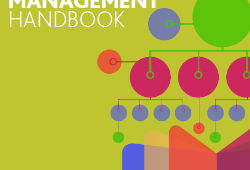Earlier this month, three data manager readers of Reference Data Review provided feedback on the Bloomberg Global ID (BBGID), which lies at the heart of the data vendor’s open symbology initiative. In response to these queries, Peter Warms, global head of Bloomberg’s global identifiers and symbology, explains that BBGID will remain free and comes with no restrictions on usage, and he provides details about Bloomberg’s future plans for the identifier.
One reader, who holds responsibility for data management at a large US-headquartered sell side institution, expressed his support for the BBGID: “The Bloomberg open symbology initiative is a step in the right direction, but more interesting is the introduction of the BBGID, which could blow the Reuters Instrument Code (RIC) out of the water.
It has the specificity and granularity to be able to meet the needs of the current market. The ISIN was never sufficient to meet all the requirements.” Another reader, this time from the buy side arm of a large global financial institution, indicated that the BBGID “ticks all the boxes” as a unique instrument identifier.
To this end, he said the main benefit of the BBGID is that it is licence free. After all, data licences are an ongoing bugbear for the industry and have even attracted the attention of the regulatory community in terms of intellectual property concerns. The Information Providers User Group’s (IPUG), for example, last year put pressure on the data vendor to open up its symbology for use within other vendors’ services, beginning with the FOW TRADEdata service Xymbology.
On this note, Warms explains: “Our symbology, inclusive of our BBGID is completely open, not only is it free, but it comes with no restrictions on usage, and is freely redistributable. We are currently supplying our symbology, for free, to many data vendors and third parties.”
The third practitioner, this time a securities reference data practice manager at a large US investment bank, reckons the open symbology initiative is a “really great idea” and he indicates that he is “glad to see a market data vendor like Bloomberg going down this path”. His suggestion is that such a standard should therefore be adopted across the industry in a similar manner to the adoption of ISO standards.
The BBGID is much more granular at the exchange/listing/ticker level than alternatives such as the London Stock Exchange’s (LSE) Sedol codes, according to the buy side reader. Other benefits noted by the reader include the fact that: it will not change nearly as much as ISINs/Sedols; it comes with free skeletal instrument identifiers; it will be enhanced to include logic so that ISIN/Sedol licensees can receive cross references; and it has been live since August for 36 million instruments (including listed futures and options).
As well as posing a significant challenge to the other vendors on the block, the reader reckons the BBGID could solve the whole front to back connectivity and linkage issue, increase settlement matching STP and provide accelerated instrument creation time to market.
He added: “And it could possibly be achieved during my career if it gets enough push. In short I think it could blow away any need for a utility. It also might be adaptable to support the new OTC derivatives identifier.” Quite a vote of confidence.
It has not been entirely smooth sailing for the data vendor, however. In October Bloomberg bowed to pressure from users to step back from the initial migration timeline for its BUID to the BBGID and agreed to maintain support for the BUID indefinitely, for now at least. The enforced migration from one identifier to another, with a defined shut off date for the BUID, was considered to be too restrictive for financial institutions struggling with a whole host of new regulatory requirements.
The third data management practitioner also notes that he believes some work is still required by Bloomberg with regards to complex structured products. “The physical implementation doesn’t appear to be fully vetted across the gamut of asset classes, particularly mortgage backed securities (MBS),” he explains. “I also have a slight problem with the fact there’s no real definition of what a BBGID identifier is supposed to be allocated to across the different asset classes. This leads me to believe there’s no real definition of a BBGID.”
In reply to this query, Bloomberg’s Warms says: “We do assign BBGIDs to MBSs. In fact, the BBGID is assigned to an expansive set of 36 million active and inactive securities, representing all asset classes with the exception of swaps. The construction and assignment of our BBGID was done through comprehensive feedback from global financial market participants.
The BBGID is assigned at the exchange level for listed instruments, with the exception of fixed income instruments where, regardless of multiple listings it is always a single currency, and therefore one BBGID is assigned. Moreover, the BBGID is both a security level identifier, and will soon be allocated at the entity level as well.” It will be interesting to see how other vendors respond to the gauntlet that has been set down by Bloomberg and whether the rest of the market agrees with these reader assessments. No doubt market participants will vote with their feet.
Subscribe to our newsletter




